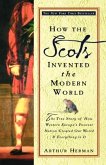In "The Black Man, the Father of Civilization - Proven by Biblical History," James Morris Webb embarks on a profound exploration of the historical and theological contributions of Black individuals to civilization through a biblical lens. Employing a scholarly yet accessible narrative style, Webb meticulously examines Biblical texts, historical records, and cultural contexts to argue for the pivotal roles played by Black figures in shaping early civilization. This work stands apart in its intersection of historiography and theology, underscoring how history has often overlooked or marginalized these contributions. Webb's use of literary devices enhances the readability of complex arguments while fostering a deeper understanding of race and history in biblical contexts. James Morris Webb, a dedicated historian and theologian, has built his academic career on illuminating the narratives often obscured in mainstream historical discourse. His extensive research into historical texts is informed by his passion for justice and equality, which has propelled him to spotlight the achievements of Black men and women throughout history. Webb's background in religious studies and his commitment to social equity serve as a foundation for this pivotal work. This book is a must-read for anyone interested in the interplay of race, history, and religion. Webb's arguments challenge longstanding perceptions, inviting readers to reconsider the contributions of Black individuals in the annals of history. It is an essential addition for scholars, students, and general readers alike who seek to gather a richer understanding of civilization's tapestry.
Dieser Download kann aus rechtlichen Gründen nur mit Rechnungsadresse in A, B, BG, CY, CZ, D, DK, EW, FIN, F, GR, H, IRL, I, LT, L, LR, M, NL, PL, P, R, S, SLO, SK ausgeliefert werden.









